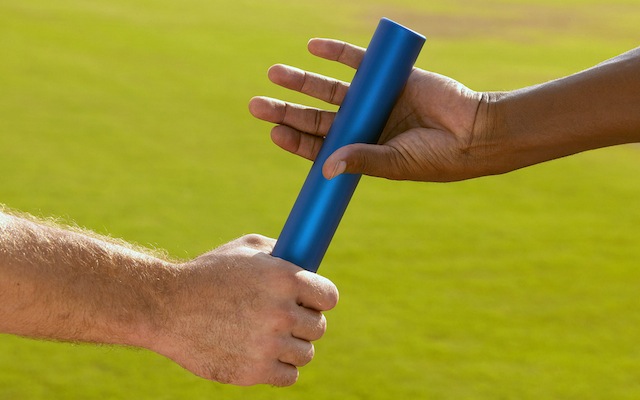- Net Carb vs Blood Sugars – The Quest Protein Bar Test
- Net Carbs vs Fiber Carbs – Jeff vs 1 net Carb Bread
- Julian Bakery Whistleblower Starts New Website
Transcript of Jeff’s Account of How his Blood Sugars Reacted to a 1 Net Carb Bread.
“My name is Jeff Roaderick. I’m 46 years old, and I have Type 1 diabetes, diagnosed in 1993, so about 18 years. You know, I’m always looking for lower carb items to eat. Julian Bakery, their 1 net carb product came up on my radar. I got on line and I purchased some. I was looking for a grain product, so I gave it a try. You know, 1 net carb is a low amount of insulin for me. I gave myself about half a unit of hemolog to digest that. And unfortunately, an hour and a half later, my blood sugar went over 300. It went up over 205 points.
It has been the beginning of a distrust in the whole net carb movement, because I see it advertised in Forecast Magazine from the ADA, they have products in there that really promote the low carb thing.
I have better success in managing my blood sugars by giving myself a dose for the total carbs rather than the net carbs. I haven’t found a net carb product where I gave myself too much insulin. I’ve always given myself the total carb dosage rather than the net carb dosage and it’s always worked out fine for me.
My friend Shelley contacted Julian Bakery. They came back and said that 85% of people have success with their bread. I am curious why am I in the 15%? Is it that I have type 1 diabetes and I process the carbohydrates differently? But I’m also very attuned to what my body’s doing. I check my blood sugar 6 to 8 times a day. I know how my body responds to certain foods that I eat. That’s been cultivated over the last 18 years of having diabetes. If it’s not unique to me, those folks who are newly diagnosed . . . how overwhelming is this for them. How many folks are getting duped by the whole net carb craze?
Here are links to other experts who are looking skeptically at net carb products: Jimmy Moore at his Livin La Vida blog, David Mendosa through Diabetes Central, and Ron Rosedale through his Facebook blog.
Background from Shelley:
It all started last March, when a friend of mine, named Jeff, emailed a puzzle to a community group I belong to, named the “Very Low Carb for Health Diabetes Support Group.” This group includes many people diagnosed with diabetes who are serious about sticking to a low-carb diet. Jeff is one of the members of this group. He has Type 1 diabetes, and he monitors his blood sugars and his carbs very closely. Jeff reported that one day, just before he was going to eat one serving of a popular “1 net carb” bread from Julian Bakery, he decided first, he would check his blood sugars. He did, and they were in the 90’s. Taking the bread’s name at face value, Jeff injected enough insulin for 1 net carb and then he ate the slice of Julian’s 1 net carb bread. When he checked his blood sugars 1 hour later, they were over 300. This was a disturbing puzzle. How can only 1 gram of digestible carbs raise blood sugars over 200 points?
Jeff looked more closely at the Julian Bakery 1 Net Cab Bread and found the Nutrition Fact label on the back. It listed 13 grams of total carbohydrates and 12 grams of fiber. Many nutrition professionals and physicians tell their diabetic patients that “fiber” is non-digestible, and since it’s included as part of “Total carbohydrates,” you simply subtract the fiber from the total carbohydrates to figure out just how many carbs are digestible, and thus, how the “net” carbs will affect your blood sugar. Following that logic, Jeff subtracted 12 grams of fiber from the 13 grams of total carbohydrate in his “1 net carb” bread, and his arithmetic got him to 1 net carb. Just as the Julian Bakery Bread had said on its label.
But his 200 point rise in blood sugars told him there was more than 1 gram of digestible carbs in that 1 net carb bread.
So last March, I emailed Julian Bakery and described his question. I ended the email to Julian Bakery by writing,
TO: Julian Bakery:
“What gives? Are you being accurate about the actual number of carbs in your product, or not? Please explain. — Shelley”
Heath Squier at Julian Bakery emailed me back with this response.
“Dear Shelley:
85% of Diabetics can eat our bread with no Insulin. Our bread has been independently verified so we are sure it is accurate. We have found that some diabetics breakdown fiber in different ways and those 15% need to take more insulin as they are more resistant to fiber offsetting the carbs in products.. This bread was tested on Type 2 Diabetics to ensure that they did not have any problems. We sell to 1,000’s of type 2 diabetics nationwide without any problems.” — Heath Squier Julian Bakery
Now it was good of him to respond promptly, but something about his reply didn’t make sense. After all, how could a bread be low-carb for some people and not for others? And even if this was so, how come? If most diabetics don’t get a rise in blood sugar, but 15% do, is the group where blood sugars spike just weird in some way, and they digest fiber differently than everybody else? Or is there something in the metabolism of diabetics who don’t show a blood sugar rise that masks the effect of what they’re eating? It seemed such an unlikely puzzle, I wanted to let it go, but that supposedly “low carb” bread has raised my friend Jeff’s blood sugars by more than 200 points. He had trusted marketing label that calls that bread “1 net carb”, and it had not been trustworthy for him.
So, I wrote back to Julian Bakery like this:
To: Julian Bakery: Something here doesn’t make sense to me. So, please tell me how you determine “Carbs” for your nutrition fact label. Is it:
1) Fibrous, non-digestible carbs plus digestible carbs = total carbs (meaning that out of the 13 grams of carbs in your product, only 1 gram is digestible)
OR
2) Digestible carbs and fibrous carbs are two separate categories and you do NOT add them together to make total carbs. They stay separate categories. (meaning that out of 25 total grams of carbs in your bread, 13 grams are “carb,” meaning digestible, and 12 grams are fiber carbs, meaning not digestible)
Also, who is the independent expert group who verified the carb count?
Julian Bakery gave this reply:
Shelley,
I replied like this:
TO: Julian Bakery
Nope, that’s not clear enough yet. When you say 13 grams of actual carbs, does that all start out as digestible carbs? That is, if you didn’t have any non-digestible fiber in your product, would it have 13 grams of digestible carbs or only 1?
Also, what is the independent group that verified your counting method?
1. Does the term “carbs” on the Food Fact label indicate only digestible carbohydrates? Or should it include all grams of carbohydrate, including non-digestible, fiber carbs?
2. A specific product nutrition label indicates that it has 13 grams of carbs, and separately lists 12 grams of fiber. (WITHOUT MENTIONING THE BAKERY, I GAVE THIS SCENARIO, BEING SPECIFIC ABOUT WHAT THEIR EXPLANATION SEEMED TO ME TO SAY) That particular product states that it has “1 net gram of dietary carbohydrates.” It appears that the company further clarifies that “grams” on the food fact label refers to digestible carbs, meaning 13 grams. They add that it’s their understanding that any fiber in a product will cancel out any of the digestible carbs. Thus, since their product has 12 grams of fiber per serving, they feel justified to claim that their product has a “net” of only 1 gram of carb.
Our nutritional panel reads 13g of Carbohydrates and 12g of Fiber not sure what else to tell you I have many friends that are diabetic that eat our bread that are Type 2 Diabetic. You can even read this review from a type 2 diabetic here: http://plainolfood.blogspot.com/2009/04/julian-bakerys-smart-carb-1-bread.html
Even after all these email exchanges, it’s still not clear to me whether this bakery is listing “Total Carbs” as the digestible carbs, OR whether supposedly the ONLY digestible carb in that bread is 1 single gram, and all the rest of the carbs ar fiber. But I am skeptical that 1 gram of digestible carb could raise blood sugars in Jeff by 200 points. Speaking of points . . . At this point, Julian Bakery and I started calling each other on the phone. They’ve been cordial, and we’ve been trying to work out an interview time ever since this. The FDA has not responded to my request for having some kind of joint interview set up.
But in the meantime, the Very Low Carb for Health Diabetes Support Group,” which Jeff and I belong to, along with David Mendosa and Barry and many others, well, we cooked up a community-based, self-help group, informal test to see what happened when all of us together came to a meeting without eating for at least 2 hours, checked our blood sugars, then ate a Quest bar with supposedly 4 grams of net carbs. The result, basically, was that half the group saw their blood sugars go up by 50 points. That’s pretty high for just 4 net carbs. I hope to post some videos of the response of these members to the test, and to post them soon. And, you can read more about the study in David Mendosa‘s excellent article for Diabetes Health Central.
Meanwhile, Ron Rosedale has posted a discussion piece regarding concerns about a “Low carb, net carb pasta” And recently, Jimmy Moore of Livin’ La Vida posted questions as well, about “net carb foods.” For him, the food in question was Atkin’s Nutritionals Protein Shakes.
So, it seems there is a rising concern about “net carb” products. The concerns are often coming from people, themselves, like Jeff, who want to manage their blood sugar levels in a healthy way and want clear and reliable information about carbs from the producers of those projects. As for what the answers will be, and how to clarify all these confusions and concerns, ideas are welcome.







I have just started watching my carbs because I ws told in December that I was a Diabectic type 2. so Thanks so much for making me aware that I really need to watch for these things. I am just learning so any help will be appriecated. Hope all will hang in there with eating low carbs, I do feel better not eating all the junk. All have a great week end..
Thank you for these enlightening posts.
I’ve formerly been a Questbar buyer, and ditto Julian Bakery bread, and ditto Atkins bars & shakes (I’m not a diabetic, just someone who read Taubes’ Good Calories Bad Calories in 2010, was amazed at the information; started eating LCHF, lost 18 lbs w/o exercise (age 57, female). Stopped getting arthritis pain, no more sleepiness, virtually no more colds; no more bronchitis which used to be a yearly horror of 2 mos’ duration.
Started reading everyone in the community (David Mendosa, Jimmy Moore, Richard D. Feinman, Richard Bernstein, Jay Wortman, Peter Attia, still read Kurt Harris, that semi-apostate ;-), etc. etc…. I love Bill Lands and all the Omega 3 people — by the way, look up Dennis Prager and listen to his interview(s) with Dr. Michael Richman who altho he’s a big statins guy and doesn’t believe in hi (non-hydrogenated) fat and wrongly fears saturated fat, he’s RIGHT ON about particle testing as far as LDL goes (regular doctor’s office LDL which is LDL-C (LDL Cholesterol) is meaningless; you need a particle count of the LDL, or a LDL-P test), and knows the best place to have particle testing done and they also do Omega 3 (how much in your red blood cells): “Health Diagnostic Labs” in Richmond, VA. (Of course the reason Dr. Richman relies on statins is that he hasn’t seen what LCHF does to lipid results! My HDL went from 36 to 78; TGs went waaaay down, LDL-C (the meaningless #) stayed the same! ApoB was 98 (needs to be <109).
As for low carb bread, shakes, and "candy" (Quest Bars): one ultimately just stops desiring these things. Or at least the desire abates considerably.
Not having BREAD is a problem tho, in that we need bread to put STUFF on. And there's something about the chewiness of bread that's very hard to give up.
Here's the "bread" I make (I microwave it in a bread-shaped container and then cut it in half):
1/4 c. ground flax
1/2 tsp. baking powder
pinch of salt
LOTS of cinnamon (1 to 1-1/2 tsp. or more)
2 good eggs (Country Hen) with only ONE of the whites
1 drop of EZSweetz (comes in 2 strengths: I get 1 drop = 1 tsp. sugar) AND I'D BE INTERESTED IN Y'ALLs' EXPERIENCE W/ EZSweetz – I've heard it's Splenda without the maltodextrin) – with this drop of sweetener the bread tastes a lot like cinnamon toast (FYI: I have a friend who uses way diff. spices for her flax bread
OPTIONAL: 1 Tblsp. coconut flour – if you use it, you'll need to add a bit of water
Microwave 2 mins at level 7.
If you don't want to use this as bread for sandwiches, you can undercook it so the center stays "mushy" and have your hot "breakfast cereal" and bread. Frankly that's what I have come to like, but I understand if that's not appealing to some.
My name is Deborah Krueger, I am 65 years old, and I live in Portland, OR.
I am the person who had the Julian Bakery Smart Carb#1 bread tested through a food testing laboratory.
They had been stating 12g protein, 13g carbs, 12g fiber, and 1g net carb per slice. Testing showed 6g protein, 23g carbs, 6g fiber and 17g net carb per slice. So all you people who have been eating this bread have been duped for years. and as for you diabetics-you have been poisoned day by day, slice by slice, for as many years as you have eaten this bread, or any of the other Julian Bakery breads for that matter. And you people looking to lead a low-carb lifestyle, well guess what; you have not been if you were eating any of the Julian Bakery breads.
Heath Squier and Julian Bakery have literally been lying for years on all of their nutritional food facts labels. All one need do is read the list of ingredients.
A couple of their breads have changed because I filed a complaint with the FDA on July 30th, 2012. Notice your Yelp dates. Their bad reviews started shortly after this time. They have only changed the three breads I had tested. Go figure. And now, the products they are producing don’t seem to be too good these days. I wonder why. Maybe it’s because you really can’t have your cake and eat it too.
We all need to be able to believe and rely on any nutritional food facts label. Companies are on their honor to produce a true label for their products. Most do. Julian Bakery has not. Who would pay 9.00-10.00 for a small loaf of bread that did not promise something? Would you? I bet not.
So if all of you who get this message from me send it to just 10 people you know, the power of the internet will take care of the rest of it.
If you are interested in reading a lengthy article about this, Jimmy Moore did a spectacular job in exposing all of it at http://livinlavidalowcarb.com/blog/julian-bakery-customer-tests-low-carb-bread-claims-requests-they-immediately-cease-sales/14568
I have much, much more information about Julian Bakery. If you are interested I will talk by phone with you. Do not email me. It takes far too long to answer an email individually.
Deborah Krueger
503-282-1299
It seems there have been other tests performed as well on type I’s at.. http://www.julianbakery.com/type-1-diabetic-results-after-eating-smart-carb-1-bread-by-the-julian-bakery/. Any updates from Jeff’s group?
Thank you very much for writing your article and making it available to me and the public.
For the past week I have been reading about net carbs regarding weight loss, and the whole thing did not seem to make sense. Your experience validates my thoughts on this.
Thanks Again !
Roseann
Fiber includes both soluble and insoluble types. Some amount of the soluble type IS digested. This has ALWAYS made “net” carbs bogus.
Also, protein can convert to glucose via gluceoneogenesis, so thinking that ONLY carb raises bg is false.
I’m a T2, but have to dose insulin based on both total carb and protein.
All that being said, the bread label is BS… and I don’t mean blood sugar. 😉 Even 13 g carb shouldn’t raise bg THAT much.
Lets say that there was NO FIBER in the bread at all.
You’re telling me that 13 grams of carbs shot your blood up 200+ BG points? I dont see how that is possible. In most diabetics (i am a type 1) 10 grams of carbs equates to 25 BG units, not 200. He must have had jelly on top of his bread or something, lol.
Congratulations on your success eating these kinds of bread, Matt. However, while you describe it as “strange” that someone might have a blood glucose response to these breads that is different than yours, to me, it’s part of a puzzle to solve. Too many people have observed that they have problems with their blood sugars after eating supposedly high fiber/low net carb products for me to believe it only happens to the occasional odd man out. Even Julian Bakery, on their website, mentions that 15% of people who use their products see a significant rise in blood sugar. As for why, read David Mendosa’s article on Diabetes Central regarding the likelihood that “fiber” triggers roughly 50% of the response of full carbohydrates. That theory may help explain why a high-fiber product might trigger a blood sugar spike in some people. Additionally, there are questions regarding how long someone’s stomach takes to empty, whether they are thin or heavy, how much they exercise, and the influence of many hormones that go up and down with what we eat. Unfortunately, at this point those hormones are not as easy to check as blood sugar levels. In the meantime, it would be very interesting if diabetics who have varying reactions to Julian Bakery breads could compare notes enough to help us figure out what, exactly, the variables are that influence whether one person reacts and another one does not. Do you have any ideas for what those variables might be? And what kind of study protocol do you think might be useful?
I am a type 1 diabetic that eats Smart Carb Breads and Manna on a regular basis. My BG level only rises between 10-20 points so it is strange your bg level rises but I know many type 1 and type 2 diabetics that do well on this bread. I actually wrote into Julian Bakery and they ended up posting my results from my Dexcom unit on their blog here: http://julianbakery.com/type-1-diabetic-results-after-eating-smart-carb-1-bread-by-the-julian-bakery/
GREAT article Shelley and Jeff, thank you. We have noticed that the net 1 carb had a high level of protein and it seemed not to add up either, would love to know if Jeff had the same response with the Manna From Heaven (2 Net Carbs). It is wonderful that groups get together like this, though sad it seems we cannot rely on nutritional labels as much as we all have in the past. Keep us posted!